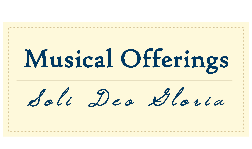Publication Date
9-2016
Document Type
Article
Keywords
Wagner, Hitler, Holocaust, music, antisemitism, ideology, influence
Abstract
The Holocaust will always be remembered as one of the most horrific and evil events in all of history. One question that has been so pervasive in regards to this historical event is the question of why. Why exactly did Hitler massacre the Jewish people? Why did he come to the conclusion that the Jews were somehow lesser than him, and that it was okay to kill them? What and who were his influences and how did they help form Hitler’s opinions leading up to the Holocaust? Although more than one situation or person influenced Hitler, I believe that one man in particular really helped contribute to Hitler’s ideas, especially about the Jewish people. This man is the famous musician Richard Wagner. While musicologists admit that Wagner was a musical genius, one aspect of his career that is hard to ignore is his strong antisemitism. In addition to speaking about his hatred for the Jews, he also wrote about it in his music, making it hard to glance over. Hitler had been close to the Wagner family, and had an obsessive, cult-like infatuation with Wagner’s music beginning in his childhood. This infatuation with Wagner’s music and his closeness to his later family helped facilitate and solidify his negative views about the Jewish people. In this paper I will explore the antisemitism that is within Wagner’s music and writing, and then I will discuss how Wagner’s antisemitism helped inform, influence, and shape Hitler’s ideas, indirectly assisting in the propagation of the Holocaust.
Volume
7
Issue
2
Article Number
1
DOI
10.15385/jmo.2016.7.2.1
Recommended Citation
Ticker, Carolyn S.
(2016)
"The Effect of Richard Wagner's Music and Beliefs on Hitler's Ideology,"
Musical Offerings: Vol. 7:
No.
2, Article 1.
DOI: 10.15385/jmo.2016.7.2.1
Available at:
https://digitalcommons.cedarville.edu/musicalofferings/vol7/iss2/1
Creative Commons License

This work is licensed under a Creative Commons Attribution-Noncommercial-No Derivative Works 4.0 License.
Disclaimer
The CedarCommons repository provides a publication platform for fully open access journals, which means that all articles are available on the Internet to all users immediately upon publication. However, the opinions and sentiments expressed by the authors of articles published in our journals do not necessarily indicate the endorsement or reflect the views of Digital Services, the Centennial Library, or Cedarville University and its employees. The authors are solely responsible for the content of their work. Please address questions to the Digital Services staff.
Copyright
© 2016 Carolyn Ticker. All rights reserved.
Included in
European History Commons, Fine Arts Commons, Musicology Commons, Music Performance Commons

